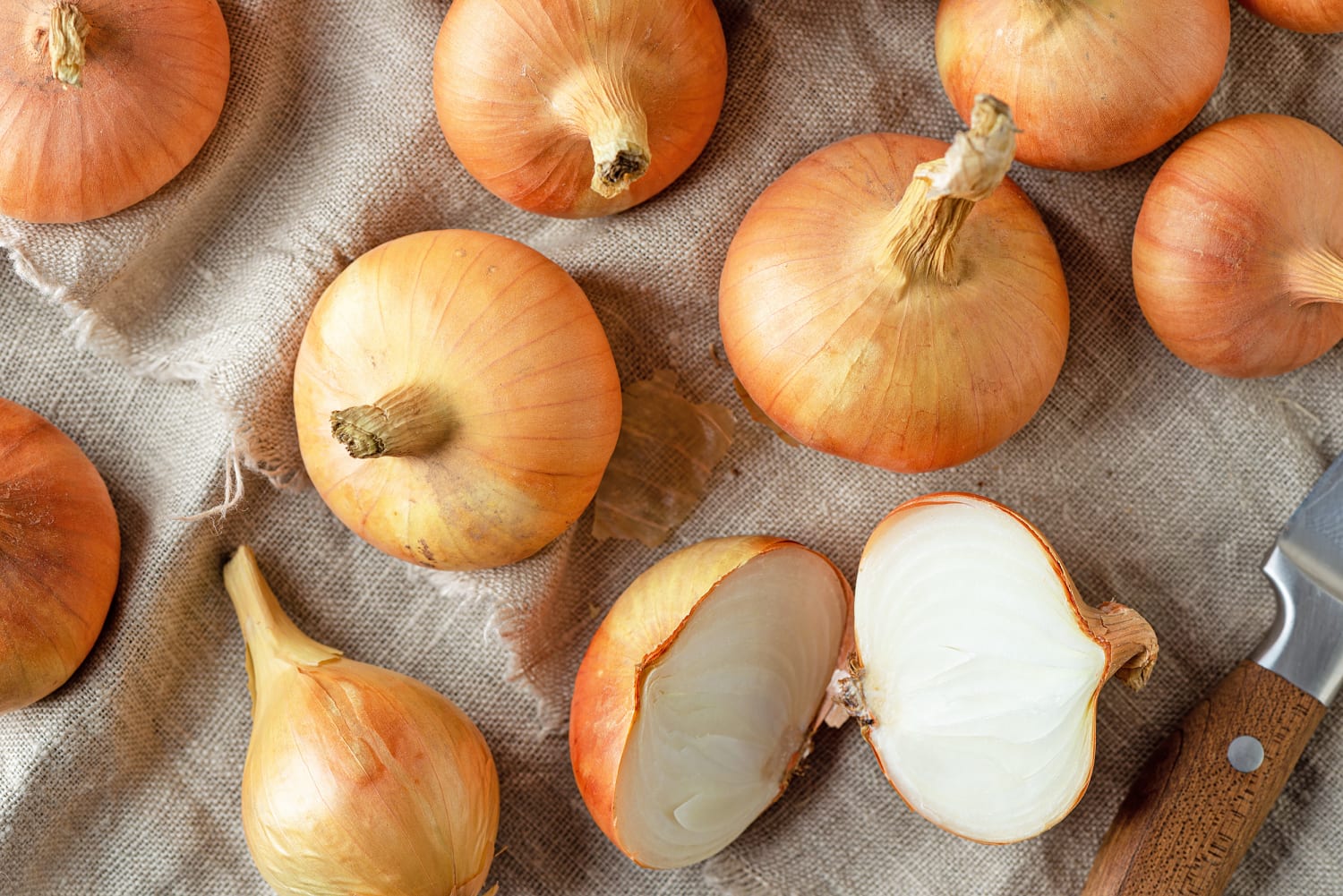
Onions might seem like simple vegetables, but they pack a punch in both flavor and history. Did you know onions have been cultivated for over 5,000 years? These humble bulbs have traveled through time, gracing the tables of ancient Egyptians, Greeks, and Romans. Not only do they add zest to dishes, but they also boast impressive health benefits. Rich in vitamins and antioxidants, onions can boost immunity and improve heart health. Whether you prefer them raw, sautéed, or caramelized, onions are a kitchen staple worldwide. From their role in folklore to their surprising uses beyond cooking, onions are more than just a tear-inducing ingredient. Ready to peel back the layers and learn more about this versatile veggie? Let's dive into some intriguing onion facts that might just change how you see this everyday ingredient!
The Humble Onion: A Kitchen Staple
Onions are more than just a kitchen staple. They have a rich history, unique properties, and surprising uses. Let's peel back the layers and uncover some fascinating facts about onions.
-
Ancient Roots: Onions have been cultivated for over 5,000 years. Ancient Egyptians revered them, believing their spherical shape and concentric rings symbolized eternity.
-
Global Crop: Onions are grown in over 175 countries. They are one of the most widely cultivated vegetables worldwide, second only to tomatoes.
-
Variety Galore: There are hundreds of onion varieties. Common types include yellow, red, and white onions, each with distinct flavors and uses.
-
Tear-Inducing Chemistry: Cutting onions releases a gas called syn-Propanethial-S-oxide. This gas irritates the eyes, causing tears.
-
Nutrient-Rich: Onions are low in calories but high in vitamins C and B6, folate, and potassium. They also contain antioxidants that promote health.
Onions in Culture and History
Onions have played significant roles in various cultures and historical events. Their influence extends beyond the kitchen.
-
Symbol of Strength: In ancient Greece, athletes consumed onions to enhance strength. They believed onions could improve performance and endurance.
-
Medicinal Uses: Throughout history, onions have been used for medicinal purposes. They were believed to cure ailments like headaches, heart disease, and even hair loss.
-
Cultural Symbolism: In some cultures, onions symbolize prosperity and protection. They are often used in rituals and ceremonies to ward off evil spirits.
-
World Records: The largest onion ever grown weighed 18 pounds. This colossal onion was cultivated by a British gardener in 2014.
Surprising Uses of Onions
Beyond cooking, onions have some unexpected uses that might surprise you.
-
Natural Insect Repellent: Onions can repel insects. Rubbing onion juice on the skin can deter mosquitoes and other pests.
-
Cleaning Agent: Onions can clean grills and remove rust. Their natural acidity helps break down grime and rust on metal surfaces.
-
Odor Neutralizer: Onions can absorb odors. Placing a cut onion in a room can help eliminate unpleasant smells.
-
Dyeing Fabric: Onion skins can be used to dye fabric. They produce a range of colors, from yellow to deep orange, depending on the type of onion.
Fun Onion Facts
Onions have some quirky and fun facts that add to their charm.
-
Onion Festivals: Many regions host onion festivals. These events celebrate the harvest with food, music, and onion-themed contests.
-
Onion Rings Origin: Onion rings, a popular snack, originated in the United States. They became widely popular in the 20th century.
-
Onion Breath: Eating raw onions can cause bad breath. Chewing parsley or mint can help neutralize the odor.
-
Onion Myths: Some believe placing an onion in a room can prevent illness. This myth dates back to the 16th century during the plague.
Onions in the Kitchen
Onions are a culinary powerhouse, enhancing flavors and adding depth to dishes.
-
Flavor Enhancer: Onions are used in cuisines worldwide. They add sweetness, depth, and umami to dishes, making them a versatile ingredient.
-
Caramelization Magic: Cooking onions slowly over low heat caramelizes their natural sugars, creating a sweet, rich flavor.
-
Pickled Onions: Pickling onions preserves them and adds tanginess. They are a popular condiment in many cultures.
-
Onion Powder: Onion powder is a convenient alternative to fresh onions. It adds flavor to dishes without the need for chopping.
-
Onion Soup: French onion soup is a classic dish. It features caramelized onions, beef broth, and melted cheese, creating a comforting meal.
-
Onion Storage: Onions should be stored in a cool, dry place. Keeping them in a mesh bag or basket allows air circulation, preventing spoilage.
The Final Slice on Onions
Onions, those humble kitchen staples, pack a punch beyond their pungent aroma. From their ancient origins to their nutritional benefits, these layered bulbs have been a part of human history for thousands of years. They’re not just for flavoring dishes; onions offer health benefits like boosting immunity and reducing inflammation. Whether you’re using them raw in salads, caramelized in stews, or pickled for a tangy bite, onions add depth and complexity to meals. Their versatility in cooking is matched by their cultural significance, appearing in cuisines worldwide. Next time you chop an onion, remember its rich history and the many ways it can enhance your culinary creations. So, whether you’re a seasoned chef or a home cook, onions are a must-have in your kitchen arsenal. Keep experimenting and enjoy the layers of flavor they bring to your table!
Was this page helpful?
Our commitment to delivering trustworthy and engaging content is at the heart of what we do. Each fact on our site is contributed by real users like you, bringing a wealth of diverse insights and information. To ensure the highest standards of accuracy and reliability, our dedicated editors meticulously review each submission. This process guarantees that the facts we share are not only fascinating but also credible. Trust in our commitment to quality and authenticity as you explore and learn with us.


